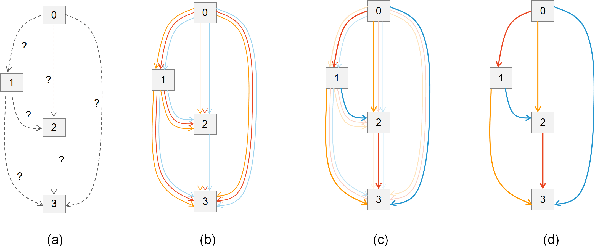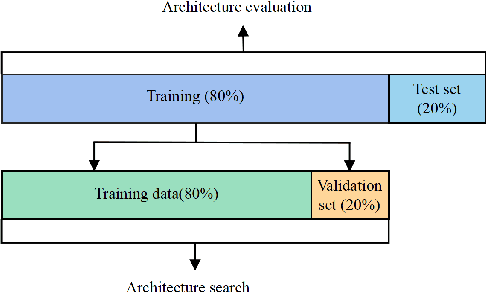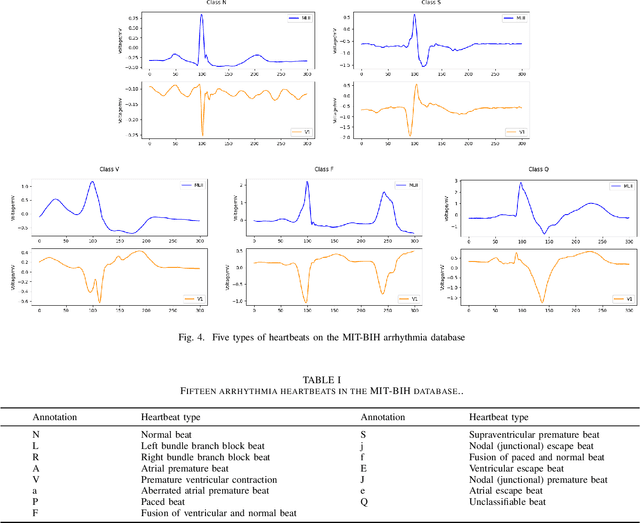Jindi Lv
Deploying Models to Non-participating Clients in Federated Learning without Fine-tuning: A Hypernetwork-based Approach
Aug 18, 2025Abstract:Federated Learning (FL) has emerged as a promising paradigm for privacy-preserving collaborative learning, yet data heterogeneity remains a critical challenge. While existing methods achieve progress in addressing data heterogeneity for participating clients, they fail to generalize to non-participating clients with in-domain distribution shifts and resource constraints. To mitigate this issue, we present HyperFedZero, a novel method that dynamically generates specialized models via a hypernetwork conditioned on distribution-aware embeddings. Our approach explicitly incorporates distribution-aware inductive biases into the model's forward pass, extracting robust distribution embeddings using a NoisyEmbed-enhanced extractor with a Balancing Penalty, effectively preventing feature collapse. The hypernetwork then leverages these embeddings to generate specialized models chunk-by-chunk for non-participating clients, ensuring adaptability to their unique data distributions. Extensive experiments on multiple datasets and models demonstrate HyperFedZero's remarkable performance, surpassing competing methods consistently with minimal computational, storage, and communication overhead. Moreover, ablation studies and visualizations further validate the necessity of each component, confirming meaningful adaptations and validating the effectiveness of HyperFedZero.
GigaVideo-1: Advancing Video Generation via Automatic Feedback with 4 GPU-Hours Fine-Tuning
Jun 12, 2025



Abstract:Recent progress in diffusion models has greatly enhanced video generation quality, yet these models still require fine-tuning to improve specific dimensions like instance preservation, motion rationality, composition, and physical plausibility. Existing fine-tuning approaches often rely on human annotations and large-scale computational resources, limiting their practicality. In this work, we propose GigaVideo-1, an efficient fine-tuning framework that advances video generation without additional human supervision. Rather than injecting large volumes of high-quality data from external sources, GigaVideo-1 unlocks the latent potential of pre-trained video diffusion models through automatic feedback. Specifically, we focus on two key aspects of the fine-tuning process: data and optimization. To improve fine-tuning data, we design a prompt-driven data engine that constructs diverse, weakness-oriented training samples. On the optimization side, we introduce a reward-guided training strategy, which adaptively weights samples using feedback from pre-trained vision-language models with a realism constraint. We evaluate GigaVideo-1 on the VBench-2.0 benchmark using Wan2.1 as the baseline across 17 evaluation dimensions. Experiments show that GigaVideo-1 consistently improves performance on almost all the dimensions with an average gain of about 4% using only 4 GPU-hours. Requiring no manual annotations and minimal real data, GigaVideo-1 demonstrates both effectiveness and efficiency. Code, model, and data will be publicly available.
GPS: Distilling Compact Memories via Grid-based Patch Sampling for Efficient Online Class-Incremental Learning
Apr 15, 2025Abstract:Online class-incremental learning aims to enable models to continuously adapt to new classes with limited access to past data, while mitigating catastrophic forgetting. Replay-based methods address this by maintaining a small memory buffer of previous samples, achieving competitive performance. For effective replay under constrained storage, recent approaches leverage distilled data to enhance the informativeness of memory. However, such approaches often involve significant computational overhead due to the use of bi-level optimization. Motivated by these limitations, we introduce Grid-based Patch Sampling (GPS), a lightweight and effective strategy for distilling informative memory samples without relying on a trainable model. GPS generates informative samples by sampling a subset of pixels from the original image, yielding compact low-resolution representations that preserve both semantic content and structural information. During replay, these representations are reassembled to support training and evaluation. Experiments on extensive benchmarks demonstrate that GRS can be seamlessly integrated into existing replay frameworks, leading to 3%-4% improvements in average end accuracy under memory-constrained settings, with limited computational overhead.
Ferret: An Efficient Online Continual Learning Framework under Varying Memory Constraints
Mar 15, 2025Abstract:In the realm of high-frequency data streams, achieving real-time learning within varying memory constraints is paramount. This paper presents Ferret, a comprehensive framework designed to enhance online accuracy of Online Continual Learning (OCL) algorithms while dynamically adapting to varying memory budgets. Ferret employs a fine-grained pipeline parallelism strategy combined with an iterative gradient compensation algorithm, ensuring seamless handling of high-frequency data with minimal latency, and effectively counteracting the challenge of stale gradients in parallel training. To adapt to varying memory budgets, its automated model partitioning and pipeline planning optimizes performance regardless of memory limitations. Extensive experiments across 20 benchmarks and 5 integrated OCL algorithms show Ferret's remarkable efficiency, achieving up to 3.7$\times$ lower memory overhead to reach the same online accuracy compared to competing methods. Furthermore, Ferret consistently outperforms these methods across diverse memory budgets, underscoring its superior adaptability. These findings position Ferret as a premier solution for efficient and adaptive OCL framework in real-time environments.
Heart-Darts: Classification of Heartbeats Using Differentiable Architecture Search
May 03, 2021



Abstract:Arrhythmia is a cardiovascular disease that manifests irregular heartbeats. In arrhythmia detection, the electrocardiogram (ECG) signal is an important diagnostic technique. However, manually evaluating ECG signals is a complicated and time-consuming task. With the application of convolutional neural networks (CNNs), the evaluation process has been accelerated and the performance is improved. It is noteworthy that the performance of CNNs heavily depends on their architecture design, which is a complex process grounded on expert experience and trial-and-error. In this paper, we propose a novel approach, Heart-Darts, to efficiently classify the ECG signals by automatically designing the CNN model with the differentiable architecture search (i.e., Darts, a cell-based neural architecture search method). Specifically, we initially search a cell architecture by Darts and then customize a novel CNN model for ECG classification based on the obtained cells. To investigate the efficiency of the proposed method, we evaluate the constructed model on the MIT-BIH arrhythmia database. Additionally, the extensibility of the proposed CNN model is validated on two other new databases. Extensive experimental results demonstrate that the proposed method outperforms several state-of-the-art CNN models in ECG classification in terms of both performance and generalization capability.
 Add to Chrome
Add to Chrome Add to Firefox
Add to Firefox Add to Edge
Add to Edge